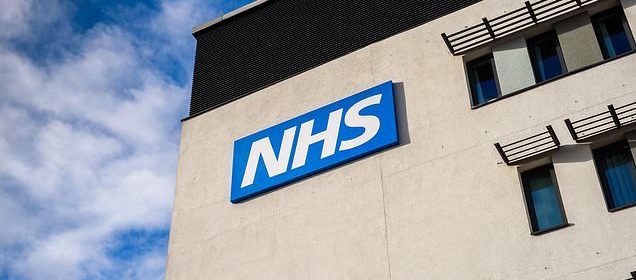Almost nine in 10 Brits think A&E services are being overused

Almost nine in 10 Brits think over-stretched A&E services are being overused unnecessarily amid the worsening NHS crisis, poll reveals
- A National Centre for Social Research survey quizzed almost 3,000 people
- Some 86% of people agreed too many people unnecessarily use A&E units
- NHS figures revealed more people than ever went to A&E in England in July
The vast majority of Britons believe A&E units are being abused by patients with minor ailments, a poll suggests.
A National Centre for Social Research survey quizzed almost 3,000 people about their thoughts towards emergency care.
The results, which come amid an NHS crisis, found 86 per cent of people agreed too many people unnecessarily use casualty units.
NHS figures last week revealed more people than ever went to A&E in England in July, making it the busiest month on record.
The results, which come amid an NHS crisis, found 86 per cent of people agreed too many people unnecessarily use casualty units
People went to emergency rooms a record 2,266,913 times in July – 160,000 more visits than in June and around 90,000 more than the previous high.
The poll also found around half of the population – 51 per cent – say it is too hard to get an appointment to see their GP.
A tenth of adults quizzed admitted they have little confidence in GPs, amid a workforce crisis that has seen waiting times spiral to an all-time high.
Parents with children under five are the most likely to have used an A&E in the last year, and to think it is hard to get a GP appointment.
The average wait in England has increased by two days in the past two years to 14.8 days, research by Pulse magazine found earlier this week.
Further results of the NCSR survey showed 17 per cent prefer A&E to visiting their GP because they can get tests done quickly.
WHAT IS THE GP CRISIS?
The UK’s GP crisis is an ongoing issue in which family doctors are struggling to cope with workloads getting bigger while the number of staff is shrinking.
A record 138 surgeries closed down in England last year, at a rate of two per week, affecting more than 500,000 patients.
The population of the UK is growing gradually older as people live longer, and there are more and more people living for a long-time with complex health conditions.
These are ones which require ongoing medical care like diabetes, heart disease or dementia – and many people have more than one.
GPs are also leaving the profession faster than they’re joining it, meaning the growing workloads don’t have a growing workforce to pick them up.
Figures in May showed there are 28,697 fully-qualified GPs working in England, down from 29,379 in 2016.
Since March 2016 – the first year after the Government promised to hire 5,000 extra GPs by 2020 – the total number of has dropped by 682.
Data for the first three months of this year showed waiting times are getting longer, too.
The number of people waiting more than two weeks to see their GP in England shot up to 12.3million this year, a 14 per cent rise from the 10.8million during the same period last year, and representing one in six patients overall.
The figure rose to 29 per cent in the most deprived areas of Britain – but was just 11 per cent in more affluent parts.
The poll also found Britons with no qualifications are twice as likely (26 per cent) to prefer A&E to visiting their GP (13 per cent).
Alicia O’Cathain, director of the Medical Care Research Unit at the University of Sheffield, welcomed the research.
She said there are ‘marked differences’ in attitudes between different social groups when it comes to views on access and confidence in A&Es and GPs.
‘This may contribute to the over-use of critical emergency care functions,’ Dr O’Cathain added, saying the findings could ‘shape policy moving forward’.
Nigel Edwards, chief executive of Nuffield Trust, said: ‘It isn’t surprising to me that people living in deprived areas feel less sure of getting a GP appointment.
‘The NHS has actually built lots of minor emergency departments specifically for less urgent complaints, so it is entirely logical that more people are showing up.
‘However, they seem to be used on top of major A&E departments and so haven’t taken the pressure off in the way that was hoped.
‘But we also know that hospital beds are often at capacity, suggesting that the number of really ill people has significantly increased over a number of years.’
Latest figures show the health service lost almost 900 full-time GPs between 2016 and 2018, while a record 138 GP surgeries shut down last year.
English surgeries have gained an additional 1.4 million patients in two years, although some of these will be duplicates.
Traditional family doctors are also dying out – with only 48 per cent of patients in England regularly able to see the GP they want.
The staffing crisis has been exacerbated by doctors retiring in their 50s to avoid new tax penalties on their pensions.
Reforms introduced in 2016 mean thousands of GPs and hospital consultants have reduced their hours, leading medics have repeatedly warned.
Source: Read Full Article
